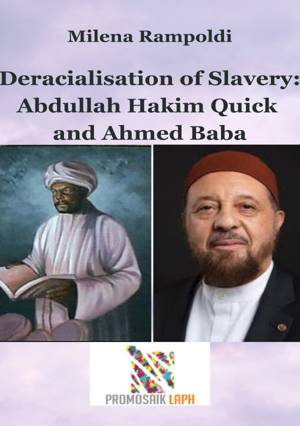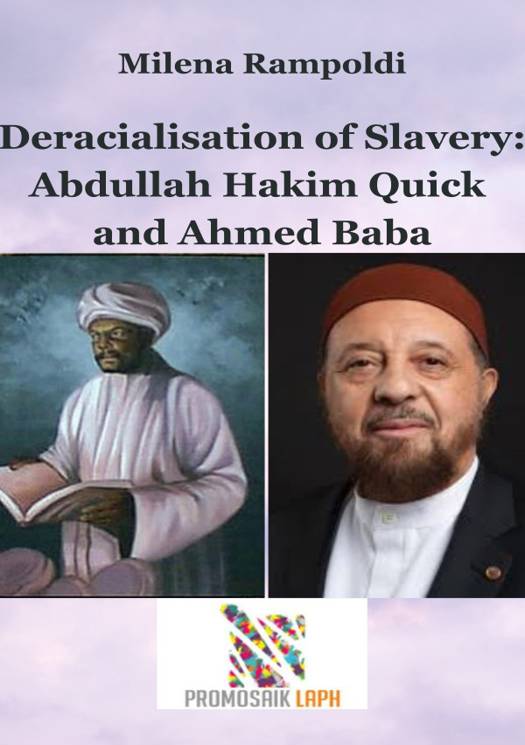
Bedankt voor het vertrouwen het afgelopen jaar! Om jou te bedanken bieden we GRATIS verzending (in België) aan op alles gedurende de hele maand januari.
- Afhalen na 1 uur in een winkel met voorraad
- In januari gratis thuislevering in België
- Ruim aanbod met 7 miljoen producten
Bedankt voor het vertrouwen het afgelopen jaar! Om jou te bedanken bieden we GRATIS verzending (in België) aan op alles gedurende de hele maand januari.
- Afhalen na 1 uur in een winkel met voorraad
- In januari gratis thuislevering in België
- Ruim aanbod met 7 miljoen producten
Zoeken
Deracialisation of Slavery: Abdullah Hakim Quick and Ahmed Baba
DE
Milena Rampoldi
Paperback | Engels
€ 11,95
+ 23 punten
Omschrijving
In this booklet including the last part of chapter four of her thesis in sociology written at A.I.U. between 2022 and 2024, the human rights activist and translator Milena Rampoldi introduces two abolitionists of two different epoch theorising the concept of the so-called "deracialisation of slavery". However, when we "deracialise" slavery in today's Mauritania, where slavery is connected with a paradigm of apartheid, racism, and ethnic/racial discrimination which came up during the historical development and because of the contact of Muslim slavery with the race-based Atlantic slave trade in the region, we risk to lose the race-based paradigm we need to struggle against racism properly by using the term "race" as the author has shown in her reflections about Snouck Hurgronje's concept of "race" in the so-called "system Islam" .In the first chapter of this booklet, Milena Rampoldi introduces the lecture given in 2011 by the scholar Abdullah Hakim Quick at the University of Florida entitled Islam, Slavery and the African. She affirms:"A reason why we urgently need abolitionism as the only option when it is about slavery in Muslim communities/societies and in the Islamic egalitarian doctrine, is also the risk of transferring slavery-driven paradigms to marriage. An example is the important issue thematised by the American scholar Musa Furber in this article I will introduce in this booklet opposing to the forced marriage of raped woman. On the basis of what affirmed by Furber, I show how easily slavery-driven paradigms can be applied in the life of people are not slaves but live like slaves. And these people are mainly women."In the second part of this booklet, the authors introduces the discourse of Ahmed Baba, an important black Muslim scholar of the 16th century, against slavery and its racialisation.
Specificaties
Betrokkenen
- Auteur(s):
- Uitgeverij:
Inhoud
- Aantal bladzijden:
- 148
- Taal:
- Engels
Eigenschappen
- Productcode (EAN):
- 9783819045042
- Uitvoering:
- Paperback
- Afmetingen:
- 148 mm x 210 mm
- Gewicht:
- 236 g

Alleen bij Standaard Boekhandel
+ 23 punten op je klantenkaart van Standaard Boekhandel
Beoordelingen
We publiceren alleen reviews die voldoen aan de voorwaarden voor reviews. Bekijk onze voorwaarden voor reviews.









